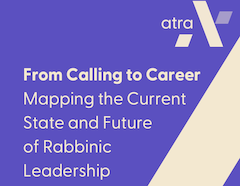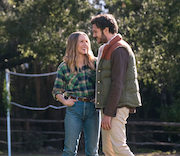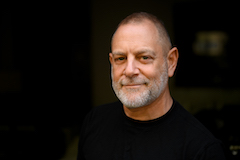Laura Lauder and Embark
eJP ran an important interview of philanthropist Laura Lauder about the Embark program she launched and supports, now as part of Mem Global. The goal of Embark is “to have [non-Jewish partners] feel comfortable in their identity as a parent of Jewish children and as a member of a Jewish household. …[W]e are here to provide you with an educational experience with a cohort of other people in your same shoes, to enable you to decide for yourself, and whatever you decide, what we hope is that the decision is to make a warm, loving Jewish home and raise your children Jewish.”
The questions by eJP’s Jay Deitcher seem hostile to Lauder’s positions. He asks, “Do you ever fear that changing expectations of children related to interfaith relationships and intermarriage is a mistake? That the community’s leniency has gone too far….” He suggests that Embark does not strengthen Jewish community when he asks, “[S]tudies show that Jews who marry other Jews have stronger engagement with Judaism. Why not focus your effort on pushing for a stricter Judaism, or pushing for day schools or focusing your finances on strengthening the Jewish community?” Even the title given to the interview – “Still preferring Jewish marriages, Laura Lauder pledges $500K annually to boost interfaith couples” – is slanted; Lauder never says that she prefers “Jewish marriages.” The title also begs the question, with a 72% rate of interfaith marriage among non-Orthodox Jews, what is a Jewish marriage today?
Lauder’s position is laudable: “It’s not a conversion program…. [M]y sense is that we have to be inclusive and embrace these families who are interfaith and who want to raise their kids Jewish, so we want to provide a vehicle to enable them to do that.”
The Embark program includes a unit on Israel, about which Lauder says: “[W]e hope that these young people will keep their views on the issue on the Gaza war out of their decision as to how much they want to incorporate Judaism in their lives. I’m hoping that this particular Israeli government doesn’t dissuade them from wanting to have more Judaism in their lives.”
Rabbis and Interfaith Marriage
 ATRA released a fascinating study conducted by Rosov Consulting about the rabbinate. Many of the study’s observations relate to interfaith families.
ATRA released a fascinating study conducted by Rosov Consulting about the rabbinate. Many of the study’s observations relate to interfaith families.
- Congregations apparently want to be inclusive of interfaith families. In searching for rabbis, “inclusivity is a key characteristic of desired candidates. This inclusivity appears to be aimed at interfaith families … and those who are not halakhically Jewish but still seek to participate in community life. The postings include phrases [that reflect] a need for openness and acceptance. The candidate is characterized as a bridge between tradition and modernity, which requires a personality that is open and adaptable. This focus is clearest in positions aimed at fostering community with younger demographics (e.g., college students), but it is also present in many congregations seeking to remain relevant in a rapidly evolving society.”
- More rabbis and future rabbis have interfaith backgrounds or relationships; among current rabbinical students, 20% were not raised Jewish or not raised exclusively Jewish. This creates issues for them.
- Some students were “deterred by concerns, whether true now or not, that some aspect of their identity would disqualify them from being able to attend rabbinical school. Perceptions of how inclusive various rabbinical schools are for … students in interfaith marriages … shaped decisions about where to attend.”
- “For some interviewees, coming from interfaith or non-Jewish backgrounds created feelings of exclusion and added hurdles in the admissions process. They described concerns that their backgrounds might be scrutinized more heavily, requiring them to prove their Jewish authenticity or justify their place in rabbinical training in ways that peers from more traditional backgrounds did not face.” One comment: “I have one non-Jewish parent, and that is a problem with a lot of people in the Jewish community, especially because it’s my mother. So, there’s plenty in the community who look at that and go, ‘you’re not really Jewish.'”
Nobody Wants This
 Rabbi Lisa Rubin, who runs the very successful Center for Exploring Judaism program based at Central Synagogue, had an interesting take on the show, “Conversion isn’t a solo act. So why is the rabbi in ‘Nobody Wants This’ acting alone?” Rubin sees interfaith marriage as “an extraordinary opportunity for growth. Interfaith relationships, approached thoughtfully, can be pathways into Judaism rather than exits from it.” Her main point is that Rabbi Noah shouldn’t have tried to mentor Joanne himself, but rather should have connected her to a program – like the Center for Exploring Judaism – which she describes beautifully. She sees the show’s title as ironic, because “Jews should want this… [W]e should want our communities to see interfaith love not as a threat, but as a chance to expand the circle.”
Rabbi Lisa Rubin, who runs the very successful Center for Exploring Judaism program based at Central Synagogue, had an interesting take on the show, “Conversion isn’t a solo act. So why is the rabbi in ‘Nobody Wants This’ acting alone?” Rubin sees interfaith marriage as “an extraordinary opportunity for growth. Interfaith relationships, approached thoughtfully, can be pathways into Judaism rather than exits from it.” Her main point is that Rabbi Noah shouldn’t have tried to mentor Joanne himself, but rather should have connected her to a program – like the Center for Exploring Judaism – which she describes beautifully. She sees the show’s title as ironic, because “Jews should want this… [W]e should want our communities to see interfaith love not as a threat, but as a chance to expand the circle.”
For more on the Nobody Wants This front, it looks like there will be a season three, but the speculation is that Joanne will convert. I won’t get the show I was hoping to see, about a happily married, Jewishly-engaged, interfaith couple.
Chosenness
 The Reconstructionist journal Evolve published an interesting essay by Rabbi Amichai Lau-Lavie about chosenness. At his congregation, Lab/Shul:
The Reconstructionist journal Evolve published an interesting essay by Rabbi Amichai Lau-Lavie about chosenness. At his congregation, Lab/Shul:
“[W]e have replaced the blessing at the Torah with asher bakhartanu im kol ha’amim – ‘Who has chosen us, along with all other peoples, to live this life with love.’ That is because I estimate that a good half of my community is not necessarily Jewish according to Jewish law. They are Jewish, they are Jewish-adjacent, they are people who have chosen to live with Jewish people. Some are Jewish patrilineally. Others, matrilineally. Still others, Jews by choice. We are human, and being Jewish is part of who we are.”
In Other News
- An article from Religion News Service about how Vice President Vance hopes his Hindu wife converts to Christianity quotes our friend Susan Katz Miller, who aptly says, “To respect your partner and everything they bring to the marriage – every part of their identity – is integral to the kind of honesty that you need to have in a marriage.” And, “pressuring one’s spouse to convert or even hoping they would convert is not a good basis for a successful marriage.”
- The Jewish Education Project’s otherwise excellent “What Will Jewish Education Look Like in 2050” does not mention any emphasis on reaching or including interfaith families.
- I was not able to attend the JFNA’s General Assembly. I heard that there was discussion of engaging interfaith families, but have not seen anything published or public on that issue. An essay before the GA talked about “unveiling innovative platforms and programs that foster an inclusive culture and provide opportunities for deeper Jewish learning and involvement for those who may have been disconnected” before October 7. In an interview after the GA, JFNA’s CEO Eric Fingerhut said “There are great opportunities to increase the number of people engaged in Jewish life and education.” It remains to be seen how much priority will be given to engaging interfaith families.

 Season two’s messaging is much improved. Most of the negativity about interfaith marriage from the first season is gone. The story throughline, about whether Joanne will convert, illustrates how pressure to do so is counter-productive. It hints at what inclusive attitudes and communities would be like, including that partners from different faith backgrounds should be accepted exactly as they are.
Season two’s messaging is much improved. Most of the negativity about interfaith marriage from the first season is gone. The story throughline, about whether Joanne will convert, illustrates how pressure to do so is counter-productive. It hints at what inclusive attitudes and communities would be like, including that partners from different faith backgrounds should be accepted exactly as they are.